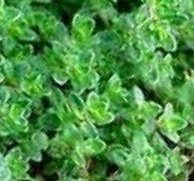Thyme
The name Thyme is derived from the Greek thumos, as identical with the Latin fumus, smoke, having reference to the ancient use of Thyme in sacrifices, because of its fragrant odour; or, it may be, as signifying courage (thumos), which its cordial qualities inspire. With the Greeks Thyme was an emblem of bravery, and activity; also the ladies of chivalrous days embroidered on the scarves which they presented to their knights the device of a bee hovering about a spray of Thyme, as teaching the union of the amiable and the active.
Added Jan 9, 2011
| 7,106 Reads
The Wild English thyme (Thymus serpyllum) belongs to the Labiate plants, and takes its second title from a Greek verb signifying "to creep," which has reference to the procumbent habit of the plant. It bears the appellation "Brotherwort." Typically the Thymus serpyllum flourishes abundantly on hills, heaths, and grassy places, having woody stems, small fringed leaves, and heads of purple flowers which diffuse a sweet perfume into the surrounding air, especially in hot weather. Shakespeare's well known line alludes to this pleasant fact: "I know a bank where the wild Thyme grows." The name Thyme is derived from the Greek thumos, as identical with the Latin fumus, smoke, having reference to the ancient use of Thyme in sacrifices, because of its fragrant odour; or, it may be, as signifying courage (thumos), which its cordial qualities inspire. With the Greeks Thyme was an emblem of bravery, and activity; also the ladies of chivalrous days embroidered on the scarves which they presented to their knights the device of a bee hovering about a spray of Thyme, as teaching the union of the amiable and the active. Wild Thyme is subject to variations in the size and colour of its flowers, as well as in the habits of the varieties. This wild Thyme bears also the appellation, "Mother of Thyme," which should be "Mother Thyme," in allusion to its medicinal influence on the womb, an organ which the older writers always termed the "Mother." Isidore tells that the wild Thyme was called in Latin, Matris animula, quod menstrua movet. Platearius says of it: Serpyllum matricem comfortat et mundificat. Mulieres Saliternitanoe hoc fomento multum utuntur. Dr. Neovius writes enthusiastically in a Finnish Journal on the virtues of common Thyme in combating whooping cough. He has found that if given fresh, from an ounce and a half to six ounces a day, mixed with a little syrup, regularly for some weeks, it is practically a specific. If taken from the first, the symptoms vanish in two or three days, and in a fortnight the disease is expelled. The simplicity, harmlessness, and cheapness of this remedy are great supporters of its claims. Other titles of the herb are Pulial mountain, and creeping Thyme. It is anti-spasmodic, and good for nervous or hysterical headaches, for flatulence, and the headache which follows inebriation. The infusion may be profitably applied for healing skin eruptions of various characters. Virgil mentions (in Eclogue xi., lines 10, 11) the restorative value of Thyme against fatigue:-- "Thestylis et rapido fessis messoribus oestu Allia, Serpyllumque herbas contundit olentes." Or, "Thestlis for mowers tired with parching heat Garlic and Thyme, strong smelling herbs, doth beat." Tournefort writes: "A conserve made from the flowers and leaves of wild Thyme (Serpyllum) relieves those troubled with the falling sickness, whilst the distilled oil promotes the monthly flow in women." The delicious flavour of the noted honey of Hymettus was said to be derived from the wild Thyme there visited by the bees. Likewise the flesh of sheep fed on pasturage where the wild Thyme grows freely has been said to gain a delicate flavour and taste from this source: but herein a mistake is committed, because sheep are really averse to such pasturage, and refuse it if they can get other food. An infusion of the leaves of Thyme, whether wild, or cultivated, makes an excellent aromatic tea, the odour of which is sweet and fragrant, whilst the taste of the [563] plant is bitter and camphoraceous. There is in some districts an old superstition that to bring wild Thyme into the house conveys severe illness, or death to some member of the family. In Grecian days the Attic elegance of style was said to show an odour of Thyme. Shenstone's schoolmistress had a garden:-- "Where herbs for use and physic not a few Of grey renown within those borders grew, The tufted Basil,--pun provoking Thyme, The lordly Gill that never dares to climb." Bacon in his Essay on Gardens recommends to set whole alleys of Thyme for the pleasure of its perfume when treading on the plant. And Dioscorides said Thyme used in food helps dimness of sight. Gerard adds: "Wild Thyme boiled in wine and drunk is good against the wamblings and gripings of the belly": whilst Culpeper describes it as "a strengthener of the lungs, as notable a one as grows." "The Thyme of Candy, Musk Thyme, or Garden Thyme is good against the sciatica, and to be given to those that have the falling sickness, to smell to." The volatile essential oil of Wild Thyme (as well as of Garden Thyme) consists of two hydrocarbons, with thymol as the fatty base, this thymol being readily soluble in fats and oils when heated, and taking high modern rank as an antiseptic. It will arrest gastric fermentation when given judiciously as a medicine, though an overdose will bring on somnolence, with a ringing in the ears. Officinally Thymol, the stearoptene obtained from the volatile oil of Thymus vulgaris, is directed to be given in a dose of from half to two grains. Thymol is valued by some authorities more highly even than carbolic acid for destroying the germs of disease, or for disinfecting them. It is of equal service with tar for treating such skin affections as psoriasis, and eczema. When inhaled thymol is most useful against septic sore throat, especially during scarlet fever. At the hospital for throat diseases the following formula is ordered: Thymol twenty grains to rectified spirit of wine three drachms, and carbonate of magnesia ten grains, with water to three ounces; a teaspoonful to be used in a pint of water at 150° Fahrenheit for each inhalation. Against ringworm an ointment made with one drachm of thymol to an ounce of soft paraffin is found to be a sure specific. The spirit of thymol should consist of one part of thymol to ten parts of spirit of wine; and this is a convenient form for use to medicate the wool of antiseptic respirators. As a purifying and cleansing lotion for wounds and sores, thymol should be mixed in the proportion of five grains thereof to an ounce of spirit of wine, an ounce of glycerine, and six ounces of water. The common Garden Thyme is an imported sort from the South of Europe. Its odour and taste depend on an essential oil known commercially as oil of origanum. Another variety of the Wild Thyme is Lemon Thyme (Thymus citriodorus), distinguished by its parti-coloured leaves, and by its lilac flowers. Small beds of this Thyme, together with mint, are cultivated at Penzance, in which to rear millepedes, or hoglice, administered as pills for several forms of scrofulous disease. The woodlouse, sowpig, or hoglouse abounds with a nitrous salt which has long found favour for curing scrofulous disease, and inveterate struma, as also against some kinds of stone in the bladder. The Hoglouse, or Millepede was the primitive medicinal pill. It is found in dry gardens under stones, etc., and rolls itself up into a ball when touched. These are also called Chiselbobs, and Cudworms. From three to twelve were formerly given in Rhenish wine for a hundred days together to cure all kinds of cancers; or they were sometimes worn round the neck in a small bag (which was absurd!). In the Eastern counties they are known as "Old Sows," or "St. Anthony's Hogs." Their Latin name is Porcellus Scaber. The Welsh call this small creature the "withered old woman of the wood," "the little pig of the wood," and "the little grey hog," also "Grammar Sows." Their word "gurach" like "grammar" means a dried up old dame. Cat Thyme (Teucrium marum verum) was imported from Spain, and is cultivated in our gardens as a cordial aromatic herb, useful in nervous disorders. Its flowers are crimson, and its bark is astringent. The dried leaves may be given in powder or used in snuff. A tincture (H.) is made from the whole herb which is effectual against small thread worms. Provers of the herb in material toxic quantities have experienced troublesome itching and irritation of the fundament. For similar conditions, and to expel thread worms, two or three drops of the tincture diluted to its first decimal strength should be given with a spoonful of water three or four times in the day to a child of from four to six years.
Aromatherapy For Your Soul Thyme Essential Oil
Added Jan 9, 2011
| 7,106 Reads
Share The Magic ...
The GoE MONEY!!! Course - A Course In Real MONEY MAGIC!
|





















